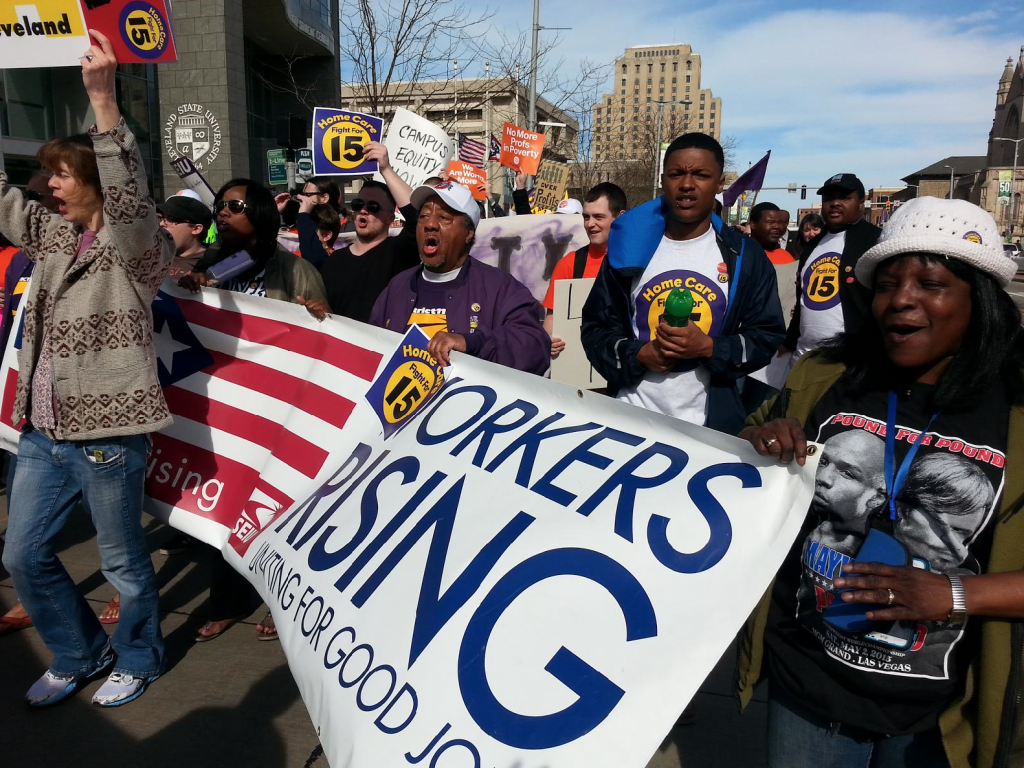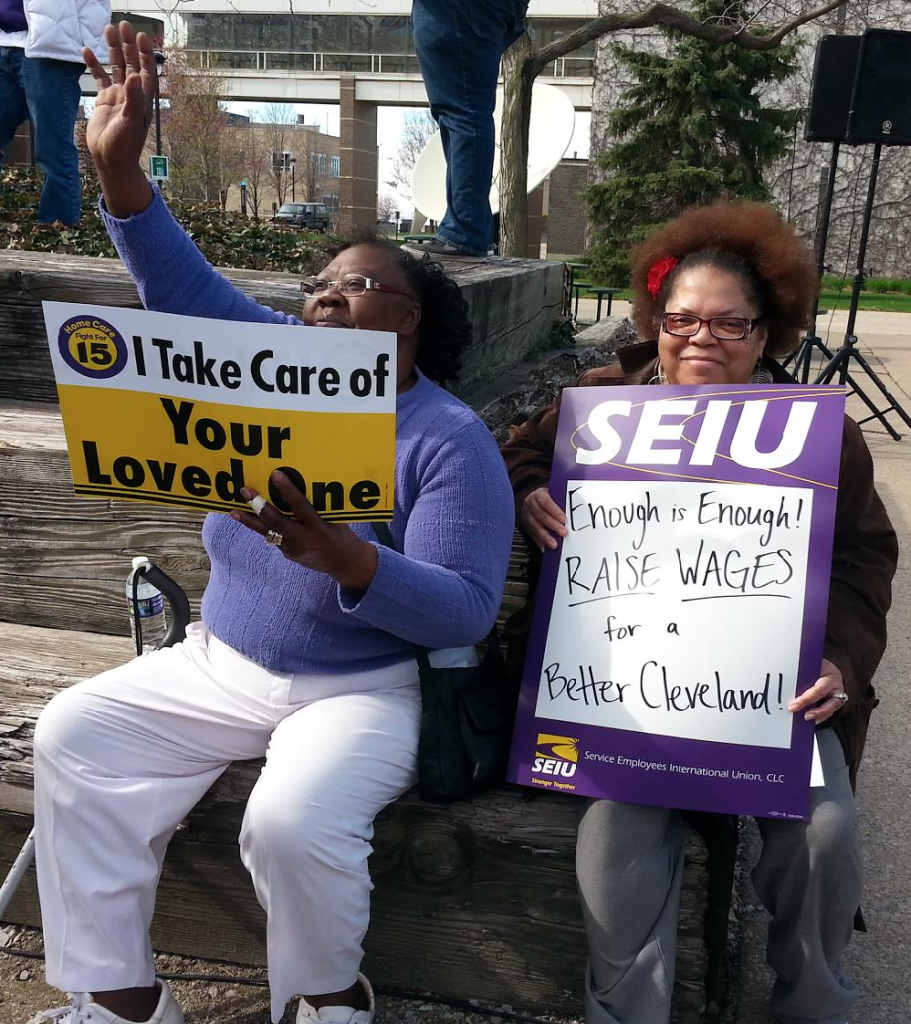
Standing up for fair wages
April 15, 2015
Standing up for fair wages
April 15, 2015

Tax Day rallies around the country are calling attention to wage inequality and the need to raise the minimum wage. Rallies in some 200 cities are "the biggest ever mobilization" by organizers to raise the minimum wage, the Huffington Post reports.
Low-wage workers rallying in Cleveland included adjunct professors -- part-time college faculty members who have joined the “Fight for 15” movement. The educators, students, home-care workers and others demonstrated at Cleveland State University today (pictured right).
Increasing the minimum wage would reduce inequality, keep workers out of poverty and help power our economy. Policy Matters Ohio research has found that Ohio’s largest job categories pay so little that many workers and their families are eligible for and need public assistance.
Almost three-fourths of people helped by public assistance programs belong to working families, according to new research reported in The New York Times.
 The report by the Berkeley Center for Labor Research and Education at the University of California estimates that state and federal governments spend more than $150 billion a year on anti-poverty programs used by working families, including Medicaid and the earned income tax credit. Wouldn’t it be better if their employers just paid them enough that they didn’t need other support?
The report by the Berkeley Center for Labor Research and Education at the University of California estimates that state and federal governments spend more than $150 billion a year on anti-poverty programs used by working families, including Medicaid and the earned income tax credit. Wouldn’t it be better if their employers just paid them enough that they didn’t need other support?
Policy Matters’ most recent brief on the minimum wage in 2013 recommended a federal raise to $10.10 an hour (the federal minimum is $7.25; Ohio's is $8.10). Such an increase would give a raise to nearly 1 million Ohioans and circulate $2.1 billion in the state economy, the report said. If the minimum wage had kept up with inflation since the high point in 1968, it would be more than $10.60 an hour today.
The bottom line is raising the minimum wage is an excellent way to grow the economy and help working families and our communities.
Tags
2015Minimum WageWork & WagesPhoto Gallery
1 of 22